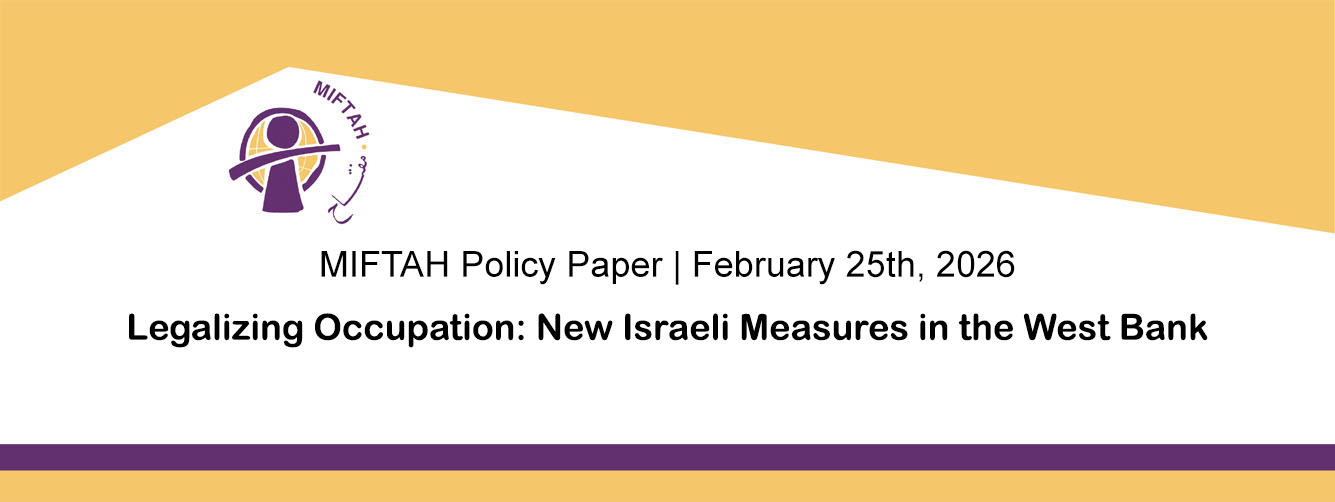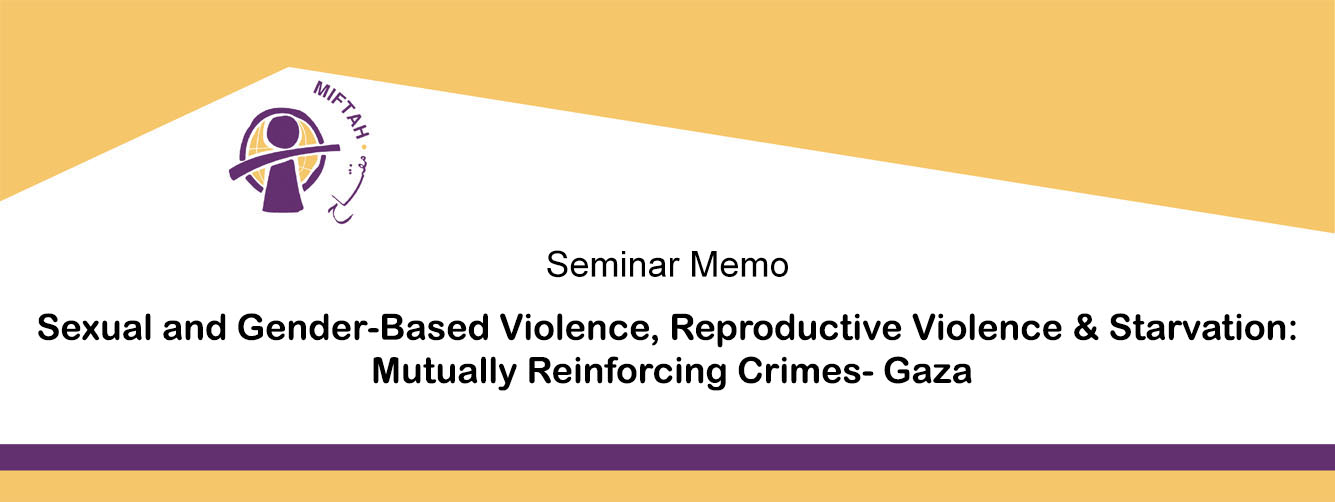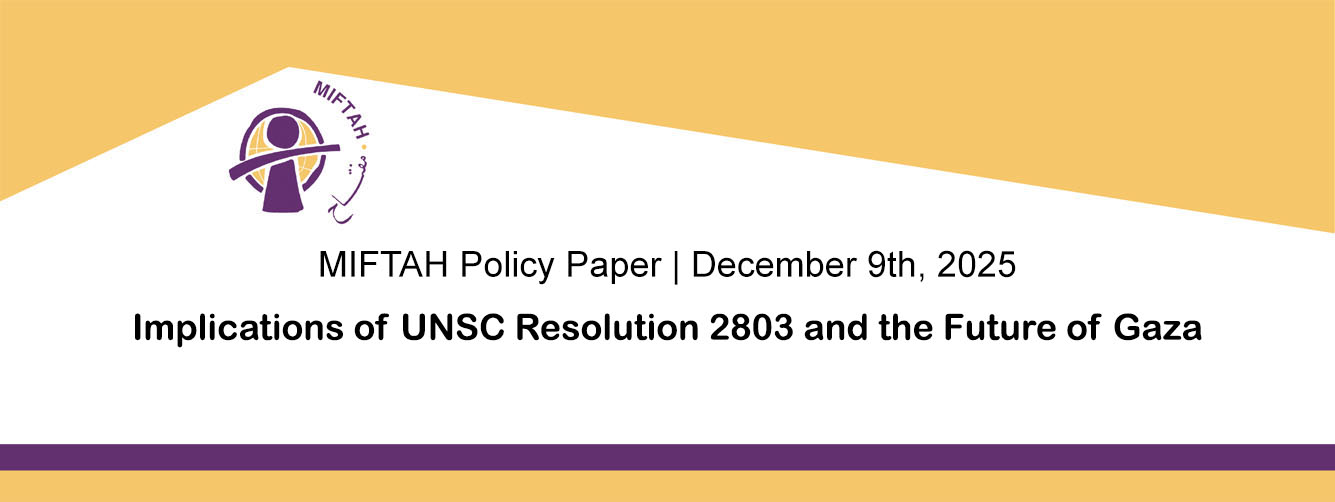EXECUTIVE SUMMARY AND RECOMMENDATIONS
If there is a silver lining in the recent succession of catastrophic developments in the Middle East, it is that they may impart renewed momentum to the search for a comprehensive settlement of the Arab-Israeli conflict. It is, admittedly, a slender hope. Since the collapse of the peace process in late 2000, none of the region’s parties has displayed the requisite capacity or willingness to reach an acceptable compromise, while the international community has shown more fecklessness than resolve. But the Lebanon war must serve as a wake-up call: so long as the political roots of the Arab-Israeli conflict are not addressed, it will remain a bottomless source and pretext for repression, radicalisation and bloodletting, both in the region and beyond. Now is the time for an international push to launch a new peace initiative.
Reasons for scepticism abound. Six years after the last genuine peace effort, whatever modicum of trust existed between the parties has collapsed. The Palestinian polity, battered from without and within and increasingly fragmented, verges on outright disintegration. It is hard to imagine which political forces could negotiate effectively with Israel, with what mandate, and with what capacity to translate any eventual agreement into new realities on the ground. Israel, fresh from its Lebanese trauma, still struggling in Gaza and shaken by a perceived growing trend in the Muslim world that rejects its very existence, hardly seems in the mood for political concessions. Instead, its political class appears torn between a desire to revive Israel’s power of deterrence, which it believes has been seriously eroded, and the inevitable finger-pointing following the war, which threatens to bring the government down. Neither is conducive to grand peace moves.
Israeli-Syrian negotiations came to a grinding halt in 2000, with anticipated ripple effects in Lebanon, Palestine, and elsewhere in the region. Today, Syria is isolated, ostracised by key international players and intent on waiting out the Bush and Chirac presidencies. Arab regimes allied to Washington, many of whom had banked on a quick Israeli victory over Hizbollah and hoped to mobilise their citizens against a so-called Shiite crescent led by Tehran, were doubly wrong: Hizbollah held on, and their Sunni publics rallied around the Shiite Islamist movement, not against it. Today, these regimes’ legitimacy deficit stands as plain as ever. Arab advocates of a diplomatic option increasingly are on the defensive, promoters of armed resistance on the ascent. The U.S. administration, preoccupied by Iraq and Iran, is giving scant sign of reconsidering its approach: no dealings with Hamas until it meets the Quartet conditions; no serious engagement with Syria; and a general lack of interest in the Arab-Israeli conflict. Indeed, with its regional legitimacy and credibility in tatters, some question whether the U.S. would be in a position to lead a renewed effort even if it wanted to.
And yet this desultory state of affairs is an important reason why an urgent, ambitious international effort is required. Years of culpable neglect have crippled forces of pragmatism throughout the region and made the achievement of peace immeasurably more difficult. Another several years of waiting would only make it harder still. Some promising ingredients exist: the possibility of a Palestinian national unity government, Syria’s repeated call for a resumption of negotiations, increased eagerness on the part of Arab regimes for a renewed peace process and even Israel’s search for an alternative way forward after the collapse of its unilateralist experiment.
Moreover, the absence of initiative is itself a policy choice that inevitably will have a significant negative effect. Perpetuation of the Arab-Israeli conflict, with all the anger it generates, fuels extremist, jihadi movements in the Muslim world; intensifies animosity toward the West and the U.S. in particular; radicalises Muslim populations in Western Europe; discredits pro-Western governments; deepens the damaging divide between the Islamic and Western worlds; and, as both Syrian and Israeli officials have warned, sows the seeds of the next Arab-Israeli war. Resolving the conflict clearly would not be a sufficient condition to tackle such deep-seated problems; but it is, on all available evidence, a necessary one.
American and Israeli reluctance to move, coupled with the extreme fragility of the situation, means that others – the UN, EU and Arab world – must now step forward with fresh ideas and initiatives, optimally to persuade Washington to act, at a minimum not to be held fully hostage to its passivity. The challenge is to devise an initiative or series of initiatives bold enough to alter regional perceptions and realities, yet not so audacious as to provoke U.S. or Israeli obstruction. Many have advanced the notion of an international peace conference; the Arab League has called on the UN Security Council to take the lead in shepherding a comprehensive settlement. Both ideas have merit; at this point, however, neither is likely to materialise due to opposition from Washington and Israel. A conference coinciding with the fifteenth anniversary of the Madrid peace conference and attended by all relevant current players could well be the most visible launching pad for renewed negotiations. The idea is worth pursuing but it could take months to organise and reach agreement on invitees and terms of reference; substantive progress, not a procedural battle, is what the region desperately needs.
In devising a new mechanism, principal lessons of the past must be kept in mind: the need to define early on the endgame, i.e., the shape of a settlement; the importance of an active third party to oversee negotiations and compliance with whatever interim agreements are reached; and the necessity to avoid a discrepancy between lofty talks at the negotiating table and destructive developments on the ground. More concretely, a new mechanism should:
- be comprehensive and inclusive, enabling all parties with a recognised stake in the outcome to participate. As the Lebanese crisis once more illustrated, the problems are closely interconnected. Hizbollah was motivated, at least in part, by intensified conflict in Gaza; Syria’s and Iran’s marginalisation did not give either a reason to restrain the Islamist movement; Hamas and Hizbollah have strong ties to Damascus and Tehran; both the U.S. and Israel saw the Lebanon war as a proxy war with Iran; Lebanon has made clear it would not sign a peace treaty with Israel before Syria does; and, more broadly, Arab normalisation with Israel (a key prize of any peace deal) will require settlement of all outstanding Arab-Israeli disputes. Dealing with Lebanon is an urgent priority but, alone, will not suffice; the Lebanese conflagration is intimately related to broader regional issues which, if not addressed, risk pushing the Middle East over the brink. Likewise, it will be hard to achieve stability in the Middle East without a peaceful resolution of the Iranian nuclear question and a broader U.S./Iranian dialogue;
- provide from the outset a clear political horizon as well as a credible means of getting there. The goal must be unambiguously stated as security and full recognition of the state of Israel within internationally recognised borders, an end to the occupation for the Palestinian people and an independent, sovereign state based on the 1967 borders with East Jerusalem as its capital, a just resolution of the refugee issue, recovery of lost land by Syria and a fully sovereign and secure Lebanese state;
- be realistic and reflect conditions on the ground, in other words begin with what is achievable: a mutual ceasefire between Israelis and Palestinians, coupled with steps to allow the Palestinian government to govern and the Palestinian economy to revive;
- build on existing, accepted instruments, such as the Quartet, but give them a more inclusive character, greater oversight and facilitating role and ensure that European and Arab actors seize the initiative rather than await an increasingly unlikely U.S. reawakening; and
- involve far greater engagement of Arab states, which have both an incentive to reach a settlement (to boost their legitimacy and prove that diplomacy, not armed action, works) and a means to do so (the ill-utilised 2002 Arab League Initiative in Beirut, which calls for full normalisation with Israel in exchange for its full withdrawal).
The Middle East is immersed in its worst crisis in years with no stable resolution in sight. Observers and analysts are quick to point out that circumstances are far from ideal for an Arab-Israeli initiative. They are right. But time for a negotiated settlement is quickly running out.
RECOMMENDATIONS
To the United Nations Security Council:
- Pass a resolution calling on members of the Quartet (UN, represented by the Secretary-General, U.S., EU, and Russia) to work closely with regional partners (the Arab League, Arab countries and Turkey) to implement an initiative aimed at achieving a comprehensive Arab-Israeli settlement based on UN Security Council Resolutions 242 (1967) and 338 (1973), the 2002 Arab League Beirut Initiative and the 2003 Roadmap.
- Instruct the Quartet and its regional partners to report every 30 days on progress toward this goal.
- Pass a follow-up resolution to Resolution 1701 calling for:
- comprehensive Lebanese security reform with the assistance of outside parties, based on the need to effectively assert the state’s sovereignty and defend its territorial integrity;
- sustained and substantial international financial assistance, channelled through the government and focused on the neglected and war-damaged areas of the South and the Bekaa valley; and
- intensive efforts to address outstanding Israeli-Lebanese issues, including a prisoner exchange, a halt to Israeli violations of Lebanese sovereignty, and resolution of the status of the contested Shebaa farms, by transferring custody to the UN under UNIFIL supervision, pending Israeli-Syrian and Israeli-Lebanese peace agreements.
To the Members of the Quartet (UN, U.S., EU, Russia):
- comprehensive Lebanese security reform with the assistance of outside parties, based on the need to effectively assert the state’s sovereignty and defend its territorial integrity;
- In concert with a core group of regional actors (Arab League, key Arab countries, Turkey), pursue the following initiatives:
- facilitate an agreement between Israel and the Palestinian Authority (PA) entailing an immediate prisoner exchange, a mutual and comprehensive ceasefire, resumption by Israel of Palestinian tax revenue transfers to the PA, a settlements freeze, implementation of the November 2005 Agreement on Monitoring and Access, and gradual withdrawal of Israeli troops, first to the positions they held prior to 28 September 2000, and later from other West Bank areas;
- establish a monitoring presence on the ground to verify both sides’ adherence to the ceasefire;
- end the financial and diplomatic boycott of the Palestinian Authority based on steps it takes toward a mutual ceasefire;
- facilitate discussions between the PLO and Israeli leaderships on the core political issues that stand in the way of achieving a final status agreement;
- conduct parallel discussions with Israel, Syria and Lebanon to prepare the ground for a resumption of Israeli-Syrian and Israeli-Lebanese negotiations on peace agreements;
- at the appropriate time, but without unnecessary delay, put forward more detailed parameters of a viable Arab-Israeli peace, in its Israeli-Palestinian, Israeli-Syrian, and Israeli-Lebanese components; and
- report to the Security Council on a monthly basis about progress on these various tracks.
To the Arab League:
- facilitate an agreement between Israel and the Palestinian Authority (PA) entailing an immediate prisoner exchange, a mutual and comprehensive ceasefire, resumption by Israel of Palestinian tax revenue transfers to the PA, a settlements freeze, implementation of the November 2005 Agreement on Monitoring and Access, and gradual withdrawal of Israeli troops, first to the positions they held prior to 28 September 2000, and later from other West Bank areas;
- Propose direct talks with the Israeli government to describe and discuss the 2002 Beirut Initiative and launch a public diplomacy campaign aimed in particular at the U.S. and Israel to explain that initiative.
To UN Secretary-General Kofi Annan:
- Prior to completing his term, deliver a major Middle East speech that states the outlines of a comprehensive Arab-Israeli settlement, underscores the need for rapid movement and the risks inherent in delay, points out how close the parties are on the substance of the issues and makes clear that his successor needs to take this issue on.
To the PLO, the Palestinian Authority, Fatah, Hamas and Other Relevant Palestinian Organisations:
- Make every effort to establish a government of national unity on the basis of the Palestinian National Conciliation Document and reform the Palestine Liberation Organisation as provided in March 2005 Cairo agreement.
- Release Corporal Shalit in the context of a prisoner swap, reinstate the truce and stop all militias from firing rockets.
- Formally empower the PLO leadership to conduct political discussions with Israel on a longer-term political settlement, announce that any agreement will be put to a national referendum and pledge to adhere to the outcome of such a referendum.
To the Government of Israel:
- Release recently jailed Palestinian cabinet members and parliamentarians and begin the release of other Palestinian prisoners (such as those who have not been charged with an offence, have been convicted of minor charges or are seriously ill or under age).
- Agree to a ceasefire providing for an end to its military operations in the occupied territories while simultaneously opening border crossings in accordance with the Agreement on Movement and Access, lifting the ban on travel imposed on segments of the Palestinian population, removing outposts, halting settlement activity, resuming tax transfers to the PA and gradually withdrawing the IDF from Palestinian population centres.
- Begin political discussions with the Palestinian leadership on a longer-term political settlement.
- Agree to talks with the reinforced Quartet on the parameters of Israeli-Syrian and Israeli-Lebanese deals, as well as the 2002 Arab League peace initiative.
- Assist in implementation of UNSCR 1701 by:
- halting, to the extent Hizbollah refrains from hostile activity, all operations in Lebanese territory, including the capture of militants and civilians in Southern Lebanon, violations of Lebanese waters and airspace and the distribution of propaganda leaflets;
- renouncing assassination of Hizbollah officials; and
- cooperating with UN efforts to address remaining Israeli-Lebanese issues, including through a prisoner exchange and resolution of the status of the Shebaa Farms.
To the Government of Syria:
- halting, to the extent Hizbollah refrains from hostile activity, all operations in Lebanese territory, including the capture of militants and civilians in Southern Lebanon, violations of Lebanese waters and airspace and the distribution of propaganda leaflets;
- Agree to talks with the reinforced Quartet on the parameters of an Israeli-Syrian deal.
- Support Arab League discussions with the Israeli leadership on the Beirut Initiative and consider its own, symbolic overture to the Israeli people (e.g., a proposed Assad/Olmert meeting) to jump-start negotiations;
- Engage in an open dialogue with Lebanon aimed at clarifying and addressing both sides’ legitimate interests.
To the Government of Lebanon:
- Agree to talks with the reinforced Quartet on the parameters of an Israeli-Lebanese deal.
- Assist in implementing a follow-on UN resolution by:
- undertaking, in cooperation with international partners, thorough security reform aimed at re-establishing and defending the state’s sovereignty over its territory, emphasising defensive capabilities and reinforcing the army as an instrument of national defence;
- ensuring that such security reform not be used to further any international or partisan domestic agenda;
- concentrating economic assistance on the neglected South and Bekaa valley; and
- facilitating Hizbollah’s gradual demilitarisation by addressing outstanding Israeli-Lebanese issues (prisoner exchange, violations of Lebanese sovereignty and Shebaa farms); reforming and democratizing Lebanon’s political system; and more fairly allocating resources.
- undertaking, in cooperation with international partners, thorough security reform aimed at re-establishing and defending the state’s sovereignty over its territory, emphasising defensive capabilities and reinforcing the army as an instrument of national defence;
To View the Full Report As PDF (540 KB)






